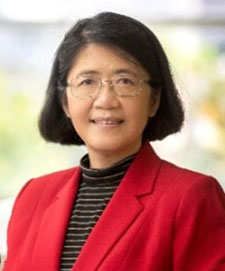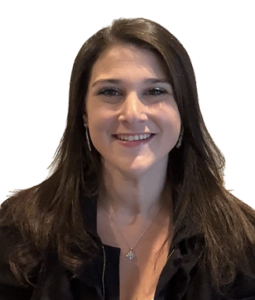Organizing Committee
- General Chair – Louis Nisiotis, University of Central Lancashire, Cyprus
- General Co-Chair – May Dongmei Wang, Georgia Institute of Technology, Emory University, USA
- General Co-Chair – Konstantina Nikita, National Technical University of Athens, Greece
- Organization Chair – Sin-Kuen Hawkins, IEEE, USA
- Publications Chair – Andriani Piki, University of Central Lancashire, Cyprus
- Technical Committee Chair – Jeewika Ranaweera, Oracle, USA
- Program Chair – Nearchos Paspallis, University of Central Lancashire, Cyprus
- Finance Chair – Christine Miyachi, Nuance Communications, USA
- Publicity Chair – Kathy Grise, IEEE, USA
- Communication Chair – Julie Bernicker, IEEE, USA
General Chair:
Bio-sketch: (m) is the General Chair of the IEEE International Conference on Intelligent Reality (IEEE ICIR). He is a lecturer in Computer Games Development, and the Course Leader for BSc Computing at the University of Central Lancashire, Cyprus. He is engaging in multidisciplinary research specialising in Intelligent Reality Environments and Immersive Technologies, and their application in Cyber-Physical-Social Systems, and in Education among other industrial and societal domains. His research interests include Virtual, Augmented and Mixed Reality technologies (XR), Intelligent Reality environments, Human-Computer Interaction, Cyber-Physical-Social-Systems, Sociability, Presence, and Immersion in Virtual Worlds. Currently leading research in innovation and application of Intelligent Reality systems and immersive XR technologies to support and foster the ongoing digital transformation of the industry and the society, to disrupt the way we (humans) interact with real and virtual environments, with our surroundings, and with each other. Dr. Nisiotis is serving the academic community as a review editor, editorial member and reviewer for multiple prestigious journals and conferences. He is a Steering Committee Member of the IEEE Digital Reality scientific community. He is also a Fellow of the UK Higher Education Academy, IEEE and ACM SIGCSE. |
General Co-Chair:
Bio-sketch: Dr. May Dongmei Wang is Wallace H. Coulter Distinguished Faculty Fellow and full professor in BME and ECE at Georgia Institute of Technology (GT) and Emory University (EU). Her research is in Biomedical Big Data and AI with xReality for predictive, personalized, and precision health (pHealth). She published 260+ peer-reviewed articles in referred journals and conference proceedings with 13,400+ GS citations, and delivered 250+ invited and keynote lectures. Dr. Wang is the Director of Biomedical Big Data Initiative, a Georgia Distinguished Cancer Scholar, a Petit Institute Faculty Fellow, a Kavli Fellow, a Fellow of AIMBE, IAMBE, and IEEE, and a member of Board of Directors in American Board of AI in Medicine. Dr. Wang is the Senior Editor for IEEE Journal of Biomedical & Health Informatics (J-BHI), an Associate Editor for IEEE Transactions for BME, and IEEE Reviews for BME, a regular panelist for NIH CDMA study section, NSF Smart and Connect Health, Brain Canada, and multiple European countries. She co-organizes IEEE Healthcare Summit on Integrating BHI and AI to Combat Pandemics, and IEEE-JBHI Special Issue on AI-driven Informatics, Sensing, Imaging and Big Data Analytics for Fighting the COVID-19 Pandemic. Over almost 20 years, she helps grow the large BHI community in IEEE, ACM, and Gordon Research Conferences. In 2021, she was selected into GT Provost’s Emerging Leader’s Program, and elected into International Academy of Medical and Biological Engineering (IAMBE) Executive Committee. During 2018-2020, she was Carol Ann and David Flanagan Distinguished Faculty Fellow at GT. During 2023-2024 and 2017-2019, she was elected IEEE-EMBS VP twice. During 2015-2017, she was GT Biomedical Informatics Program Co-Director in Atlanta Clinical and Translational Science Institute (ACTSI), and 2016 IEEE-EMBS Annual Conference Chair. During 2014-2015, she was IEEE-EMBS Distinguished Lecturer, and an Emerging Area Editor for Proceedings of National Academy of Sciences (PNAS). Before 2016, Dr. Wang was Director of Bioinformatics and Biocomputing Core in NIH/NCI-sponsored U54 Center for Cancer Nanotechnology Excellence, and Co-Director of Georgia-Tech Center of Bio-Imaging Mass Spectrometry for over 10 years. Dr. Wang received BEng from Tsinghua University China, and MS with PhD degrees from GT. She is a recipient of GT Outstanding Faculty Mentor Award and EU MilliPub Award (for a high-impact paper that is cited over 1,000 times). Her research has been supported by NIH, NSF, CDC, Georgia Research Alliance, Georgia Cancer Coalition, Shriners’ Hospitals for Children, Children’s Health Care of Atlanta, Enduring Heart Foundation, Coulter Foundation, Microsoft Research, HP, UCB, and Amazon. |
General Co-Chair:
Bio-sketch: Prof. Konstantina Nikita, M.D., Ph.D., is a full Professor at the School of Electrical and Computer Engineering, National Technical University of Athens and the Irene McCulloch Distinguished Adjunct Professor of Biomedical Engineering and Medicine at Viterbi School of Engineering and Keck School of Medicine, University of Southern California. She is the Editor-in-Chief of the IEEE Journal of Antennas and Propagation and a member of the Editorial Board of the IEEE Transactions on Biomedical Engineering and IEEE Transactions on Antennas and Propagation. She has been the technical manager of several European and National R&D projects on fundamental research and practical applications. She has been Chair of the program/organizing committee of more than 50 international conferences and has served as keynote speaker at several international conferences and symposia. Professor Nikita has been the advisor of 29 completed Ph.D. theses, several of which have received various awards. She is a Fellow of the Institute of Electrical and Electronics Engineers (IEEE), a Founding Fellow of the European Association of Medical and Biological Engineering and Science (EAMBES), and a Fellow of the American Institute of Medical and Biological Engineering (AIMBE). She serves as chair of the LS7 Consolidator Grant Panel of the European Research Council (ERC), for granting investigator-driven frontier research in the domain of life sciences. Her current research interests include biomedical image computing and analytics, physiological systems modeling and identification, biomedical telemetry, bioelectromagnetics, intelligent health systems, medical decision support, and biomedical informatics. She has published 200 journal articles and 350 conference proceedings papers, is the author or editor of 12 books, and holds several patents for her discoveries. She has received various awards, among which the Bodossakis Foundation Academic Prize (2003) for exceptional achievements in “Theory and Applications of Information Technology in Medicine”. |
Organization Chair: Bio-sketch: Sin-Kuen Hawkins is a Program Director in IEEE Future Directions, supporting new and emerging initiatives, including digital and data privacy, brain and neurotechnology, AI/ML integration, and life sciences. Prior to joining IEEE, she served as an engineering consultant on projects for the U.S. Department of Defense and the U.S. Army. She also has 18 years of experience with Bell Communications Research and Telcordia Technologies, as Member of Technical Staff and most recently was the Director of Network Engineering and Design leading the development of number portability, lawful surveillance capabilities, and emergency services. Ms. Hawkins is a graduate of Cornell University and Carnegie Mellon University. |
Publications Chair:
Bio-sketch: Dr. Andriani Piki is a Lecturer in Computing and the Deputy Course Leader for B.Sc. Computing at the University of Central Lancashire, Cyprus. Dr. Piki is the Publications Chair of the IEEE International Conference on Intelligent Reality (IEEE ICIR), Posters Co-Chair at the ACM Celebration of Women in Computing (womENcourage), a reviewer in academic journals, and member of the scientific committees in various academic conferences including International Council for Educational Media, International Congress on 21st Century Literacies, and National Conference of New and Renewable Energy Sources. Her research interests are centred on computer-supported collaborative learning, mobile and contextual learning, games-based learning, technology and usability evaluation, smart and intelligent workplace learning environments. She has received funding to undertake research on inclusive education towards enhancing the accessibility of gamified learning content and mobile educational games for learners with disabilities and socio-economically disadvantaged learners. Andriani Piki is also a Member of the International Association of Mobile Learning (IAmLearn). |
Technical Committee Chair:
Bio-sketch: Jeewika Ranaweera worked as a principal hardware engineer, working on high-speed microprocessors, at Oracle. She received her Bachelor’s in CSE from ISPJAE in Havana, Cuba and her Master’s and PhD degrees in ECE from the University Of Toronto, Canada. She is an IEEE Senior Member and a steering committee member for IEEE Future Directions and Digital Reality Initiatives. Jeewika authored an eBook about her engineering journey for IEEE Women in Engineering to inspire others to follow STEM careers and illustrated the 1stchildren’s book published by IEEE. Recently she delivered a Keynote on “Successful Leadership Development in STEAM Careers,” at the IEEE LAEDC 2020, WIE/YP Networking session in Costa Rica. Jeewika is passionate about delivering talks on Quantum Computing, and the need to have a diverse environment to eliminate “Bias in AI” that discriminates minority. She also shared her unique insight via a podcast on areas where immersive technologies benefit humanity. She has been a speaker at the IEEE LAEDC, Drive World Conference, ChipChat, IEEE VTS, IEEE CCNC, AWE, IEEE TTM, Grace Hopper Conference, IEEE WIC Summit, and FB Developer Circle. She has also been a Track chair for the IEEE WIE ILC. She volunteers as a female technologist through the Oracle Education Foundation. As a Program Evaluator for ABET, she helps guide the content, quality and delivery of ECE degree programs around the world. She has authored and co-authored many papers published in technical journals, or presented at international conferences. Jeewika holds five US Patents. Currently, Jeewika volunteers as a steering committee member for IEEE Future Directions Digital Reality Initiative, an ABET PEV for electrical and computer engineering programs, Chair for IEEE WIE for SCV, a member of the IEEE Electron Device Society Strategic Directions committee, and a program committee member for the IEEE Quantum Week 20/21. At Oracle, she enjoys making a difference as a female technologist for Oracle Education Foundation, a community leader for Oracle Women’s Leadership, a Diversity and Inclusion ambassador, a sustainability champion, and as a member of Emergency Response/Search & Rescue teams. |
Program Chair:
Bio-sketch: Dr. Nearchos Paspallis is an Associate Professor at the University of Central Lancashire — Cyprus (UCLan Cyprus) teaching mobile and software development topics in Computing. His research focuses on Mobile and Distributed Systems, in the wider area of Software Engineering. He is also active in applications of Gamification and of Machine Learning, as well as in Computer Science Education especially in the context of encouraging high school students to take an interest in coding. In this context, he founded non-profit Code Cyprus (https://codecyprus.org), which organizes a yearly event aiming to encourage high school students to learn programming. He participates in multiple research projects, securing funding from both European Union and Cypriot funding agencies, including Horizon Europe, Erasmus+, and Innovate. Dr Paspallis received a BEng/MEng in Computer Engineering and Informatics from the University of Patras, an MSc in Computer Science from the University of California, Santa Barbara, and a PhD also in Computer Science from the University of Cyprus. |
Finance Chair:
Bio-sketch: Christine Miyachi has over 30 years of experience working for startups and large corporations. She writes a blog about software architecture: https://abstractsoftware.blogspot.com. She is currently a Software Development Manager at Nuance Communications leading a team of Full Stack Engineers working on the DAX (Dragon Ambient eXperience) using CICD deployed on Azure, holds several patents, and an IEEE Senior member. Christine graduated from the University of Rochester with a BS in electrical engineering. She holds two MIT degrees: an MS in technology and policy/electrical engineering and computer science and an MS in System Design and Management. Additionally, Christine is the Chair of the IEEE Future Directions Committee that anticipates and determines the direction of existing, new and emerging technologies, and related issues, and to spearhead their investigation and development by IEEE. See more about Christine at www.christinemiyachi.com |
Publicity Chair:
Bio-sketch: Kathy Grise, Senior Program Director – IEEE Future Directions, supports new and emerging initiatives, including cloud computing, big data, digital realities, AI/ML, digital twins, and digital transformation, supports IEEE Future Directions, and manages the digital presence team for Future Directions. Ms. Grise serves as the Technical Program Chair of the IEEE COMPSAC 2022 Symposium – Data Sciences, Analytics, & Technologies (DSAT). Prior to joining the IEEE staff, Ms. Grise held numerous positions at IBM, and most recently was a Senior Engineering Manager for Process Design Kit Enablement in the IBM Semiconductor Research and Development Center. Ms. Grise led the overall IT infrastructure implementation, and software development in support of semiconductor device modeling verification, packaging, and delivery; device measurement and characterization data collection and management, and automation for device modeling engineers. Ms. Grise is a graduate of Washington and Jefferson College, and an IEEE Senior member. |
Communication Chair:
Bio-sketch: Julie Bernicker graduated from Rutgers University in 2014 with a B.A. in Communications. She is currently the Digital Communications and Content Specialist for IEEE Digital Reality (DRI), an IEEE Future Directions initiative launched in support of Digital Transformation. Julie has been working at IEEE for over 6 years and has held several different roles. She is a marketing and communications professional with a creative mindset, keen attention to detail, and exceptional writing/editing skills. She has extensive experience managing digital projects and programs including webinars, websites, marketing graphics, email campaigns, and more. |










